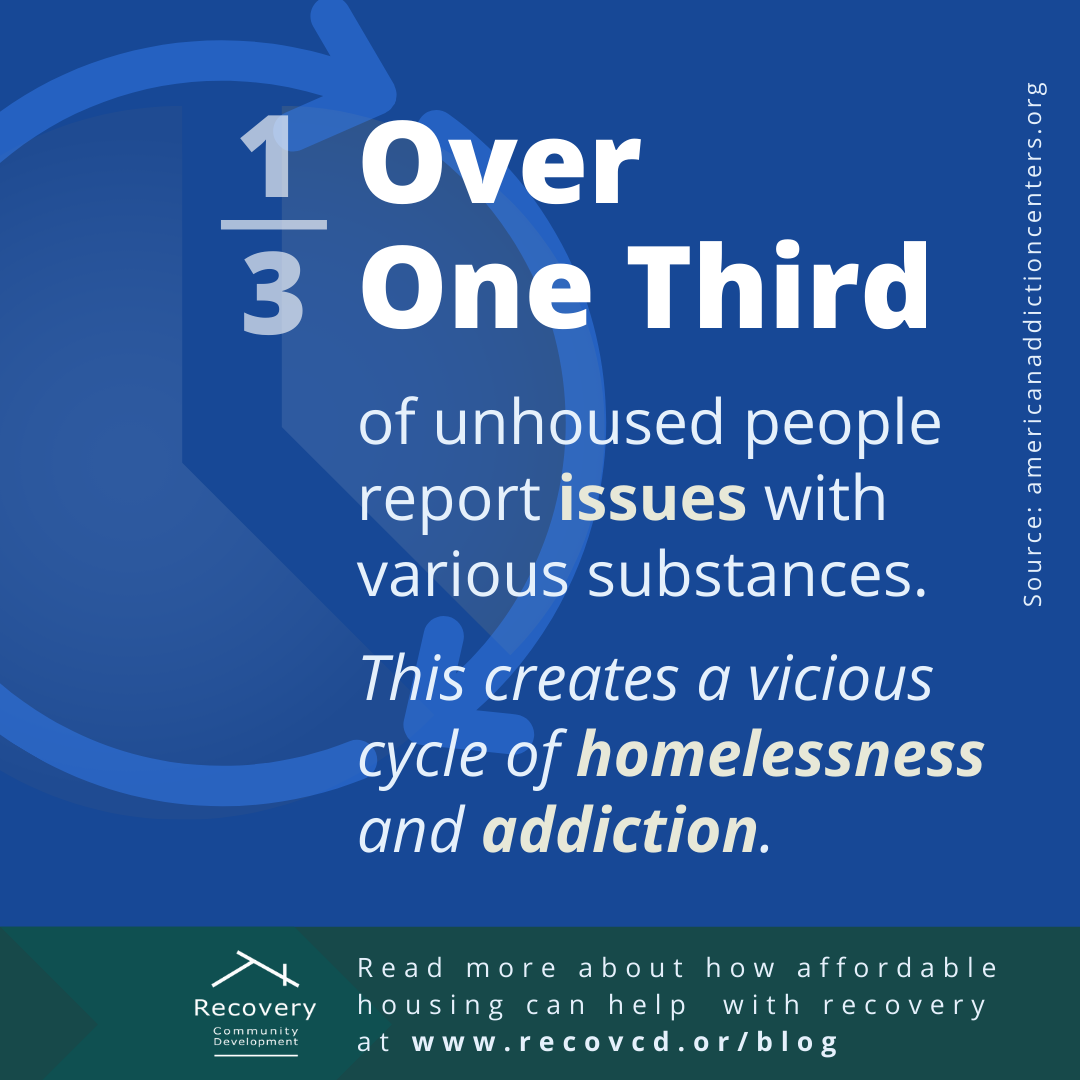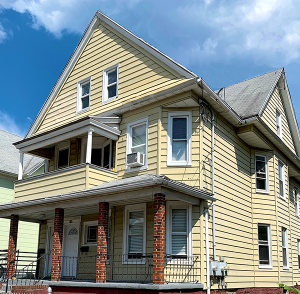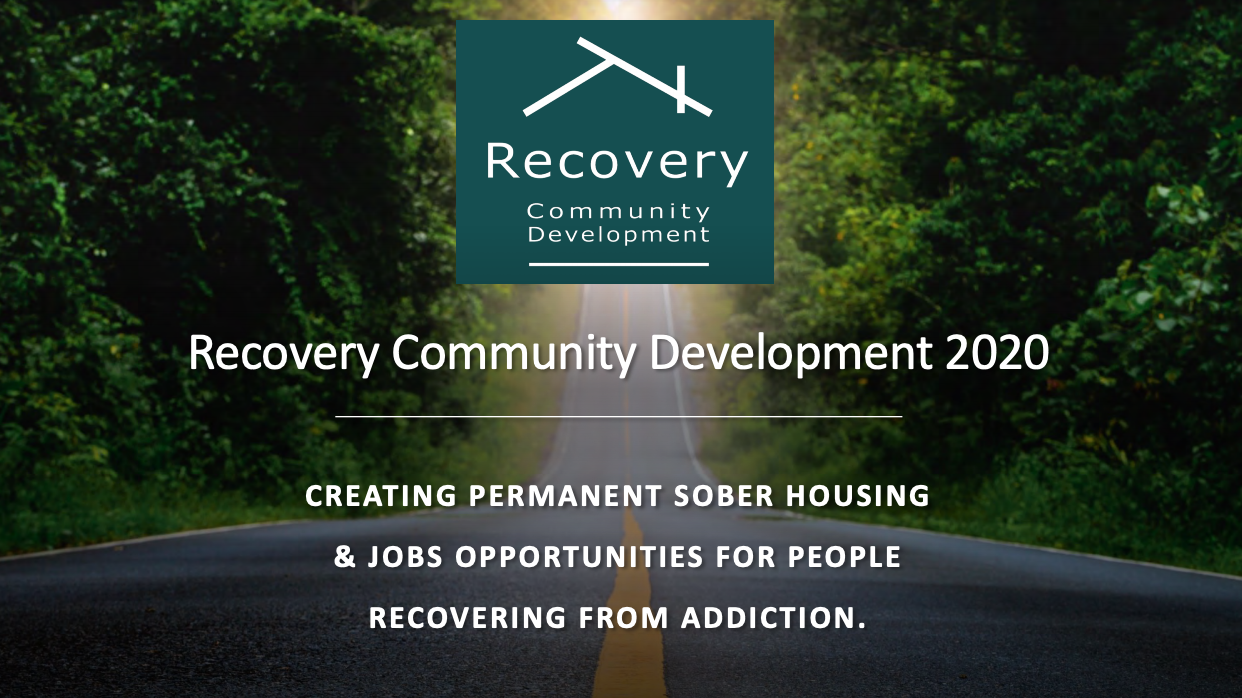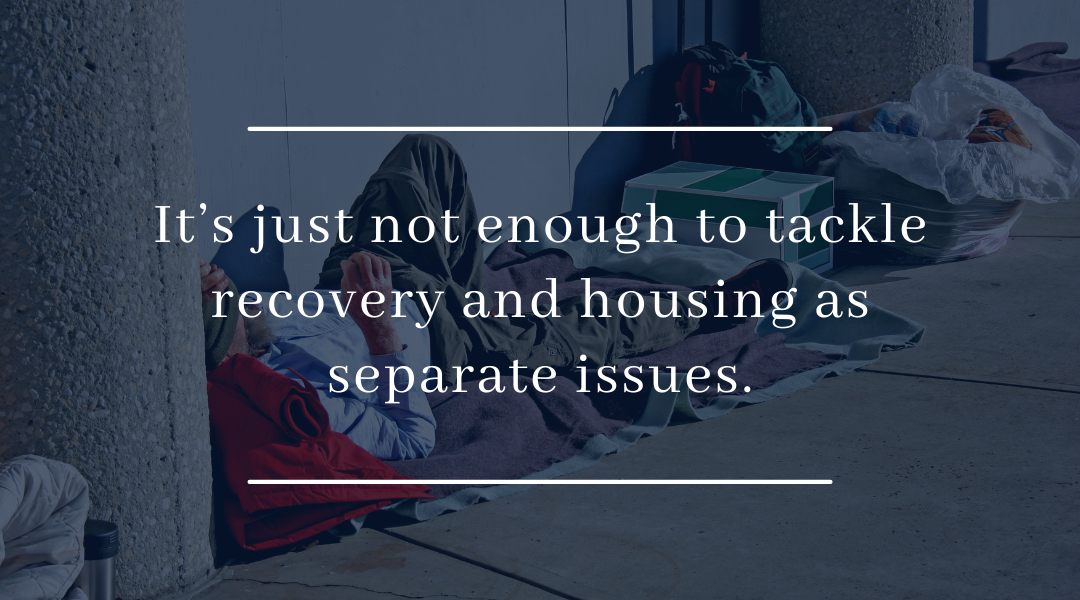Healing from substance use disorder is a lengthy process that takes far more than the typical 12 steps we’re used to. There’s just so much of life tangled up in addiction that it can be hard to account for all of it at once.
For example, where in those 12 steps does it ever talk about how or where you’re supposed to live while you’re working towards recovery in the first place? (That seems pretty important to us.)
At Recovery Community Development, we understand that substance use disorders don’t exist in a vacuum. Substance use disorders are continually impacted by every aspect of our lives—especially where and who we’re living with—so it’s important to think of recovery just as holistically. Although every individual’s process for achieving and maintaining sobriety may differ, everyone deserves a safe and supportive place to call home during their recovery journey.

One of the clearest examples of how deeply intertwined the relationship between substance use and housing is, is the prevalence of substance use disorders in the unhoused population.
Over a third of unhoused people report issues with various substances, either before or during their housing struggles, which is reflective of the vicious cycle of homelessness and addiction. The negative impacts of substance use disorder can make someone far more likely to become unhoused. At which point the mental, emotional, and physical toll of homelessness often increases their reliance on substances as a coping method. Thus, the cycle continues. And, unfortunately, it is often the folks who need it most that struggle to gain access to and/or stay within housing assistance programs.
These barriers to affordable housing for individuals in recovery come in the form of federal policies restricting previous or current drug-users from accessing support. HUD-assisted housing programs impose time-limited bans on anyone with a drug-related eviction on their record, and individual housing agencies are allowed to completely prohibit people with history of drug use from ever receiving their care.
This lack of support can trap recovering addicts in that same vicious cycle of instability and substance use when they are most ready to grow and heal.
The danger of housing instability when combined with substance use disorder simply cannot be overstated. In a 2017 survey of mayors across the country, city officials noted that “better coordination with mental health and substance [use] services,” was one of the top concerns in reducing homelessness in their communities. It’s just not enough to tackle recovery and housing as separate issues.
Housing Alone Isn’t Enough for Addiction Recovery
Balancing relationships, finances, and mental health throughout recovery is hard enough when you’re not alsostruggling with your living situation. The deep anxiety of housing instability alone can often be a relapse trigger, which leads people right back to that vicious cycle of coping through substance use and further jeopardizing their living situation.
Though experiencing a relapse is absolutely nothing to be ashamed of, (it’s a lot more common than you may think), we’d ideally like to minimize the possibility wherever possible. That’s where recovery housing comes in.
Recovery housing refers to any assisted housing geared towards recovering addicts, and though their methodologies tend to differ the positive results are undeniable.

According to this 2014 study, duration of sobriety for recovering addicts placed in supportive housing groups was significantly longer than those placed in non-recovery residencies. Furthermore, this positive affect was compounded the longer the residents stayed within their supportive housing groups.
There are a wide variety of housing groups geared towards supporting people recovering from substance use disorders that offer a like-minded and supportive community. However, not all of these are designed with affordability in mind.
At RCD, we want to ease the burden of financial and housing instability so our residents can focus on their recovery and set themselves up for long-term growth. Plus, our sober housing environment means that relapse triggers tend to be much fewer and farther between.
No one deserves to worry about where they’re going to sleep at night or how they’re going to afford the roof over their head this month—let alone people who are recovering from a substance use disorder. However, there are very few resources that currently address the many, varied factors at play in such a complicated balancing act: recovery, mental health, community, money, housing, job training, etc. The list goes on and on.
That’s why we are committed to offering adults in recovery everything they need to have a supportive journey. By integrating community recovery and sober living with both affordable housing and professional development, we have a uniquely holistic support system for the members of our community.

Our mission is to offer a recovery-friendly home to those that need it, and we are always working towards improving and expanding our offerings. We are currently renovating our third sober housing unit, Brooks Street House. Once completed, this new location will provide nine more men the safe, supportive, and affordable accommodations they need throughout their recovery journeys.
Housing is a human right—and an often underserved one at that—but substance use recovery requires far more than just housing alone. It’s about finding the right living situation for you and your recovery needs: including costs, community, and personal development.
Just think, how could affordable, sober housing impact your recovery journey?
Want to support RCD’s efforts to provide safe, supportive, sober housing? Donate today!

